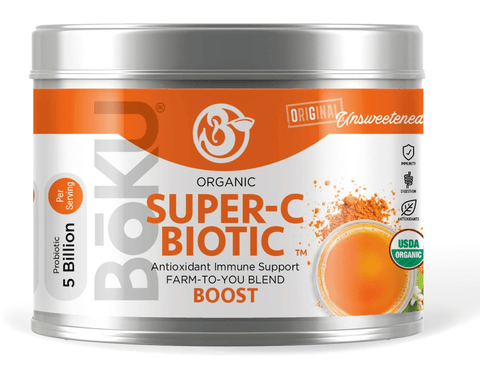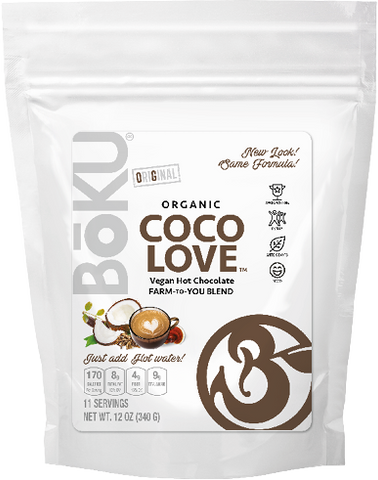
If you take a probiotic supplement, are you wasting your money? A recent 60 Minutes segment, Do Probiotics Actually Do Anything?, suggested that probiotic supplements, which are a multi-billion-dollar-a-year industry, are not supported by research to support gut health and health concerns such as allergies.
The biggest bombshell in the segment was when two researchers revealed that in a study they led, probiotics failed to populate the guts of half of the participants.
And we’re not talking about a smattering of people but rather thousands of participants, whose microbiomes—the collection of trillions of intestinal bacteria—were analyzed by endoscopies and colonoscopies.
This news is a bitter pill to swallow if you take probiotic supplements. But don’t throw out your probiotics just yet….
First of all, some may argue that the segment was biased. Despite the claim on the segment that evidence doesn’t support probiotics for certain conditions such as Irritable Bowel Syndrome (IBS), there are several research studies of gold-standard quality (meta-analysis of clinical trials) that suggest the opposite.
Consider this study of over 35,000 participants who were administered the probiotic strain, bifidobacterium infantis. The co-authors of the study concluded: “[P]robiotics containing B. infantis might be an effective therapeutic option for IBS patients, which could significantly alleviate the symptoms of IBS without significant adverse effects….”
The segment also suggested there’s no research to support probiotics for allergies, despite this study as well as this one.
But instead of further arguing whether the segment was balanced or biased, let’s focus on the one thing that the segment may be right about: taking a probiotic supplement may not guarantee that the friendly bacteria in the capsule will eventually colonize in your GI tract.
This is true if two conditions aren’t met. The first condition: If the probiotic supplement is of poor quality. And the second reason?
If you aren’t eating enough superfoods.
Why are superfoods important for probiotics?
Prebiotic Fiber: Superfood For Probiotics
Would you eat something you can’t digest that ferments in your colon? Doesn’t sound so appetizing does it? But if you want optimum gut health, and all the benefits that come from it—support for your immune system, mood, digestive system, brain function, hormone balance, metabolism, etc.—you need to eat lots of foods that contain indigestible fibers that colonize near the end of your GI tract.
These undigested fibers are called prebiotic fiber. Prebiotic fiber feeds the trillions of bacteria in your gut. Probiotics love prebiotic fiber; it’s their favorite food! Without enough prebiotic fiber to feed on, your gut will not be colonized with enough friendly bacteria. The latest research (like this study) demonstrates that an absence or insufficiency of good bacteria in the gut is linked to obesity and disease.
If you’re eating a diet rich in processed foods, the 60 Minutes segment may have been spot on. Just by popping a probiotic pill, you can’t expect to achieve ironclad gut health. You need to consume prebiotic every single day in order to feed the friendly bacteria in your gut, which is home to approximately 80% of your immune cells. That’s why gut health is inextricably linked to immune function.
—> BōKU’s award-winning, 55-ingredient Organic Superfood Powder is the easiest way to feed your gut bacteria with prebiotic fiber, including a multi-mushroom blend and algae, both of which are rich in the prebiotic fiber, beta-glucans.
Benefits of Prebiotic Fiber
Prebiotic fiber gets metabolized by microorganisms in your gut. As a result, the composition of your gut microbiota changes. (It’s technically incorrect to call it the “microbiome” even though most people refer to it as such; the microbiome is the collection of all bacteria, fungus and viruses throughout the body, not just the gut.)
And when your gut composition changes for the better, you, the host to the free-riding invisible critters, may experience enhanced health. If you take care of your bacteria by feeding them superfood nutrition, they’ll take care of you!
Here are some examples of how consuming prebiotic fiber may contribute to overall health:
- Decreases inflammation in the mucosal barrier of the intestinal tract.
- Helps digest dairy by enhancing lactase enzyme activity.
- Alleviates constipation and may prevent diarrhea
- Improves gastrointestinal discomfort
- Supports bone health
- Increases protein digestion
- Prevents accumulation of pathogenic bacteria such as e. Coli and salmonella
- Improves immune-cell communication and regulation
Best Sources of Prebiotics
You can get plenty of prebiotic fiber from eating garlic and onion, which are not included in our award-winning Superfood powder for obvious reasons (taste).
But be weary when reading articles about prebiotics. This is because many of them will likely include oats as one of the richest sources of prebiotic fiber. This may be true, however, oats, along with wheat are often contaminated with glyphosate, a weed-killing chemical that may be carcinogenic to humans.
To safely consume a sufficient amount of prebiotic fiber to feed your gut bacteria, there’s no easier and more affordable solution than Superfood powders.
For instance, Super-C-Biotic contains 5 billion CFUs per serving along with over one thousand percent (1000%) daily value of vitamin C!
And if you love hot chocolate, you’ll be glad to know that we offer the healthiest vegan hot cocoa powder, Coco Love. Coco Love contains mood-supporting raw cacao, one of the richest sources of prebiotic fiber on the planet.
Are Probiotics A Waste of Money? Conclusion
Probiotics have been a best-selling natural health supplement over the last several years. These encapsulated friendly bacteria are a trend that will likely not fade away anytime soon, and for good reason. There’s overwhelming evidence that gut health is directly linked to the functionality of several systems in the body, including the immune system.
However, eating a nutrient-dense diet is crucial for ensuring that probiotics colonize in the gut. Nutrient-dense foods contain prebiotic fiber, the ultimate appetizer for probiotics.


